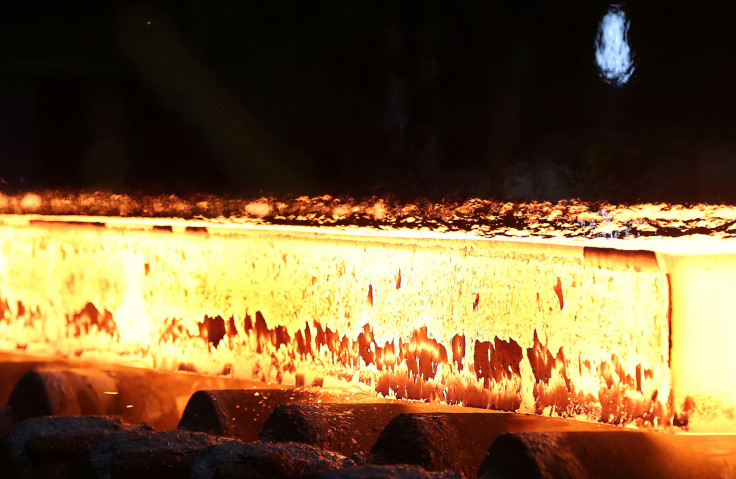Steel shortages trigger backlash against Trump's trade war
Chaos and uncertainty ignited by Trump's trade war against America's allies and adversaries.
WASHINGTON — U.S. companies seeking to be exempted from President Donald Trump's tariff on imported steel are accusing American steel manufacturers of spreading inaccurate and misleading information, and they fear it may torpedo their requests.
Robert Miller, president and CEO of NLMK USA, said objections raised by U.S. Steel and Nucor to his bid for a waiver are "literal untruths." He said his company, which imports huge slabs of steel from Russia, has already paid $80 million in duties and will be forced out of business if it isn't excused from the 25 percent tariff. U.S. Steel and Nucor are two of the country's largest steel producers.
"They ought to be ashamed of themselves," said Miller, who employs more than 1,100 people at mills in Pennsylvania and Indiana.
Miller's resentment, echoed by several other executives, is evidence of the backlash over how the Commerce Department is evaluating their requests to avoid the duty on steel imports. They fear the agency will be swayed by opposition from U.S. Steel, Nucor and other domestic steel suppliers that say they've been unfairly hurt by a glut of imports and back Trump's tariff.
U.S. Steel said its objections are based on detailed information about the dimensions and chemistry of the steel included in the requests. "We read what is publicly posted and respond," said spokeswoman Meghan Cox. Nucor did not reply to requests for comment.
The 20,000-plus waiver applications that the Commerce Department has received illustrate the chaos and uncertainty ignited by Trump's trade war against America's allies and adversaries. It's a battle that critics of his trade policy, including a number of Republican lawmakers, have warned is misguided and will end up harming U.S. businesses.
Trump and European leaders agreed this past Wednesday not to escalate their dispute over trade, but the tariff on steel and a separate duty on aluminum imports remains in place as the U.S. and Europe aim for a broader trade agreement. The metal taxes would continue to hit U.S. trading partners such as Canada, Mexico and Japan even if the U.S. and the EU forge a deal.
Miller bristled over insistence by Nucor and U.S. Steel that steel slab is readily available in the United States. "That's just not true," he said.
His company isn't the only one looking overseas for a product described as being consistently in short supply. California Steel Industries, a mill east of Los Angeles in Fontana, described the slab shortage as "acute" on the West Coast and declared that its waiver request is critical to its survival.

Aiming to rebuild the U.S. steel industry, Trump relied on a rarely used 1962 law that empowers him to impose tariffs on particular imports if the Commerce Department determines those goods threaten national security. He added a twist: Companies could be excused from the tariff if they could show, for example, that U.S. manufacturers don't make the metal they need in sufficient quantities.
But there are hurdles to clear on the path to securing an exemption. A single company may have to file dozens of separate requests to account for even slight variations in the metal it's buying. That means a mountain of paperwork to be filled out precisely. If not, the request is at risk of being rejected as incomplete. All this can be time consuming and expensive, especially for smaller businesses.
The requests are open to objections. The Commerce Department posts the exemption requests online to allow third parties to offer comments — even from competitors who have an interest in seeing a rival's request denied. But objections are frequently being submitted just as the comment period closes, undercutting the requester's ability to fire back.
Willie Chiang, executive vice president of Plains All American Pipeline, told the House Ways and Means subcommittee on trade last week that his company had no opportunity to respond to objections that contained "incorrect information" before the Commerce Department denied its exclusion request. Chiang didn't say who submitted the inaccurate information.
"The intent here is to restrict imports on a broad scale," said Richard Chriss, executive director of the American Institute for International Steel, a free trade group opposed to tariffs. "It wouldn't make sense from the administration's perspective to design a process that readily granted exclusions."
The Commerce Department declined to comment for this story.
© Copyright IBTimes 2025. All rights reserved.





















